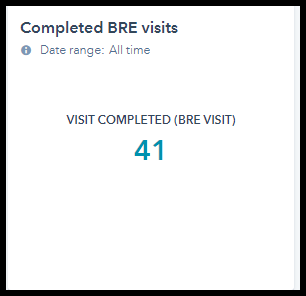Developing a brand voice involves defining the tone and style that your business will use to...
Economic Development Strategic Plan SMART Goals
I read a lot of Economic Development Strategic Plans every year.
We set up the HubSpot for Economic Developers System to help you track and achieve these goals.
Unfortunately, we still see too many plans that don't include proper goals. Here's how to get better.
A smart goal is a specific, measurable, achievable, relevant, and time-bound goal. This acronym helps you set goals that are clear, specific, and actionable, and that can help you achieve success in your personal and professional life.
To create a smart goal, you need to ensure that your goal meets the following criteria:
-
Specific: Your goal should be clear and specific, and should not be vague or general. For example, instead of setting a goal to "lose weight," you could set a goal to "lose 10 pounds in 3 months by exercising for at least 30 minutes per day and eating a healthy, balanced diet."
-
Measurable: Your goal should include specific, quantifiable metrics that you can use to track your progress and determine whether you are achieving your goal. For example, instead of setting a goal to "improve my grades," you could set a goal to "earn a B or higher in all of my classes this semester."
-
Achievable: Your goal should be challenging but realistic, and should take into account any potential obstacles or barriers that you may need to overcome. For example, instead of setting a goal to "become a millionaire in one year," you could set a goal to "increase my income by 20% this year by finding a higher-paying job or starting a side business."
-
Relevant: Your goal should be aligned with your values, priorities, and overall objectives, and should help you move closer to achieving your desired outcome. For example, instead of setting a goal to "learn a new language," you could set a goal to "learn Spanish to improve my communication skills and increase my job opportunities."
-
Time-bound: Your goal should have a specific deadline, and you should plan out the steps you need to take to reach your goal on time. For example, instead of setting a goal to "get in shape," you could set a goal to "run a 5K in 3 months by following a training plan and increasing my running distance each week."
By ensuring that your goals are specific, measurable, achievable, relevant, and time-bound, you can set goals that are clear, actionable, and more likely to be achieved.
Example for economic development
We will increase the number of new businesses in our community by 10% in the next 12 months by providing targeted support and resources to entrepreneurs, including access to capital, mentorship, and networking opportunities.
This goal meets the criteria for a smart goal because it is specific (increase the number of new businesses by 10%), measurable (using the number of new businesses as the metric), achievable (by providing targeted support and resources), relevant (to the organization's mission of promoting economic development), and time-bound (within the next 12 months). By setting this goal, the organization can clearly define what it wants to achieve and can take specific, actionable steps to achieve it.
Here is a checklist for setting and achieving smart goals:
-
Make sure your goal is specific. Be clear and specific about what you want to accomplish, and avoid vague or general goals.
-
Make sure your goal is measurable. Include specific, quantifiable metrics that you can use to track your progress and determine whether you are achieving your goal.
-
Make sure your goal is achievable. Set goals that are challenging but realistic, and consider any potential obstacles or barriers that you may need to overcome.
-
Make sure your goal is relevant. Ensure that your goal is aligned with your values, priorities, and overall objectives, and that it will help you move closer to achieving your desired outcome.
-
Make sure your goal is time-bound. Set a specific deadline for achieving your goal, and plan out the steps you need to take to reach your goal on time.
By following this checklist, you can ensure that your goals are clear, specific, and actionable, and that they are more likely to be achieved.
Report Examples. These reports live on a BRE dashboard and refresh continually.
Number of Complete BRE Meetings. This is standard.

What Board Members want to see...
Challenges and Results... tell them about the impact you are making.

Who can help you do this? Well, that would be us.

